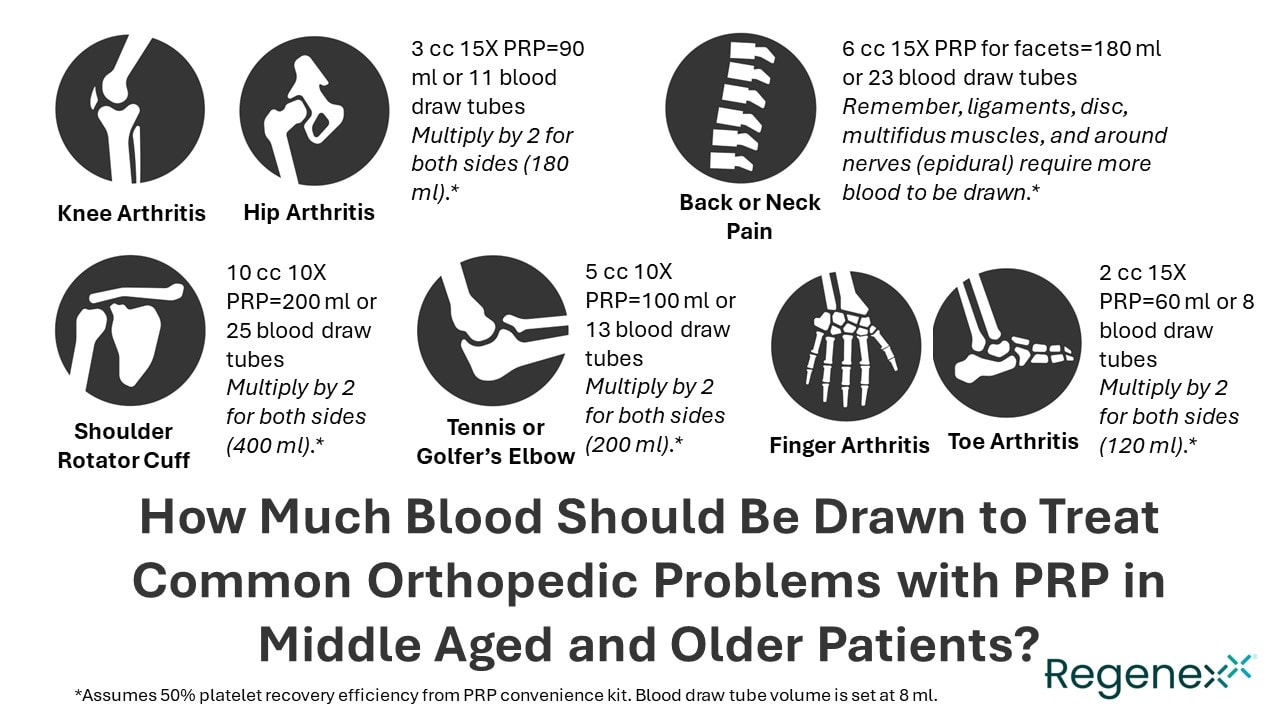How Much Blood Should Be Drawn to Make PRP?

We often see patients who tell us they had a PRP shot that didn’t work. When I ask how much blood was drawn, they tell me a few tubes, which isn’t enough to make a high-quality PRP. Hence, these patients never had real PRP, but dilute plasma containing some platelets. Why does this happen? The clinics using this approach have no idea which end is up, which is the vast majority of clinics out there claiming to use PRP. At Regenexx, we do this differently and always have, focusing on injecting high-dose PRP. To that end, I created this infographic so that every patient (or your friends or family) can ask the clinic offering PRP how much blood they will draw. If the amounts by body area aren’t similar to what’s shown here or the clinic has no idea, then the patient is paying for an inferior product with a high likelihood of not working! Creating a high-dose PRP requires a bigger blood draw, so insist on it!

NOTE: This blog post provides general information to help the reader better understand regenerative medicine, musculoskeletal health, and related subjects. All content provided in this blog, website, or any linked materials, including text, graphics, images, patient profiles, outcomes, and information, are not intended and should not be considered or used as a substitute for medical advice, diagnosis, or treatment. Please always consult with a professional and certified healthcare provider to discuss if a treatment is right for you.
